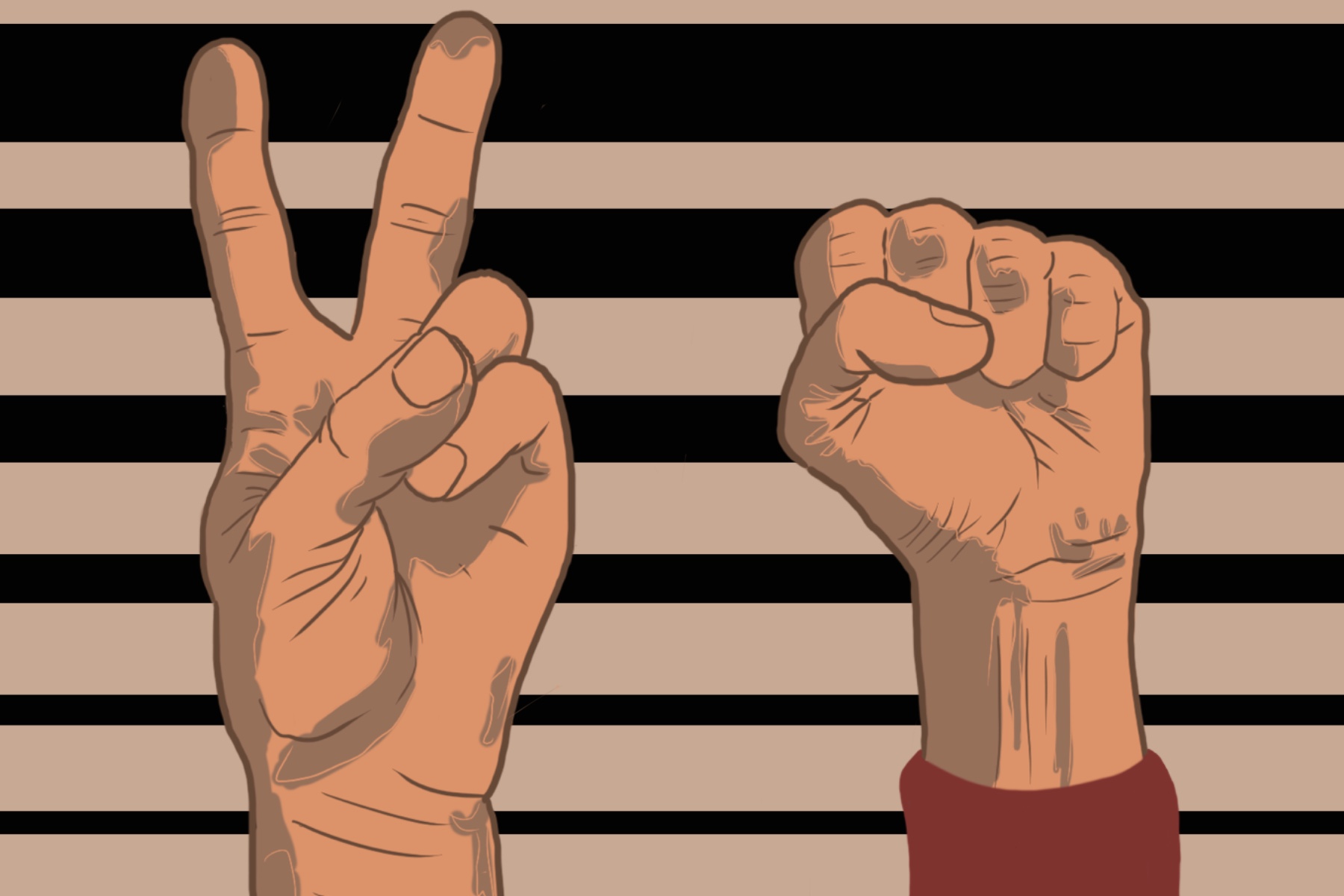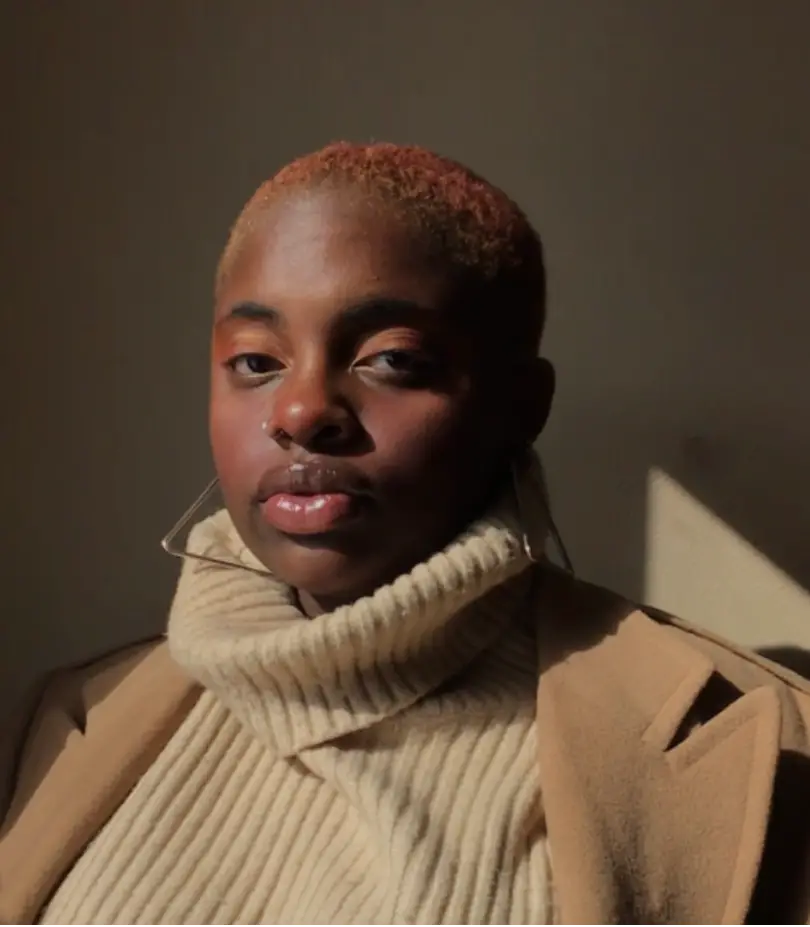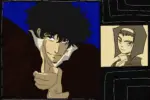Huey Freeman opens “The Boondocks” by stating, “Jesus was black, Ronald Reagan was the devil and the government is lying about 9/11.” Written by Aaron McGruder, the comic strip turned adult swim television program has a cult following in the black community.
The show follows Robert “Granddad” Freeman, his grandchildren Huey and Riley and a host of other side characters as they try to navigate life in the suburb of Woodcrest after being born and raised in the South Side of Chicago.
During its nine year run on Cartoon Network, there were few topics the show didn’t tackle — white people saying racial slurs, Barack Obama’s presidency and the banned episodes on Black Entertainment Television (BET) were all satirized without remorse.
“The Boondocks” strength lies in the McGruder’s ability to take serious issues in the black community and comment on them without overtly preaching or losing any of the humor. What made the animated series special was that it was purposeful. Few adult animations have achieved the level of satire that it did in its first three seasons because their purpose is solely entertainment.
“South Park” is a great example of a failed attempt at satire. The episodes are produced within a week so that current events are reflected in the series, and therein lies the problem. There is no time to develop real commentary in such a short time span and despite what creators Trey Parker and Matt Stone may have intended, the show is less satirical and more shock value offense.
The sitcom frequently takes aim at liberal viewpoints and political correctness with no tact — there is no lesson to be learned, no alternate viewpoints to consider. The punchline is in punching down, something Parker and Stone do not shy away from as self-described apolitical, equal opportunity offenders.
Other popular adult cartoons like “Family Guy” and “American Dad” miss the mark as well. Everyone wants their edgy adult humor to be satire, but making light of serious topics with no intention to teach or change someone’s perspective is just an insensitive joke.
In “The Boondocks,” however, the punchline is in the truth. The misadventures of two black children trying to navigate white America are funny not only because they are often ridiculous, such as when Riley and his two rich, white aspiring gangster friends attempt to kidnap Oprah, but because they ring true to the experiences of millions of black Americans.
The transition from a predominately black neighborhood to a white one at such a young age is jarring. Friends, familiarity and culture are lost in the move. The series captures this in Riley’s constant misbehavior and Huey’s refusal to assimilate; two different approaches to solving the same problem.
“The Boondocks” also explores racial relations with a variety of different white characters who seem to exist for the express purpose of causing trouble for the black cast. Mr. Wuncler is an embodiment of predatory capitalist practices. He opens and then closes a restaurant with Granddad to obtain the last property he did not own in the suburb.
The character then acts as a loan shark to young Jazmine Dubois over a pony and hikes the interest on Granddad’s house after years of him living there. Edwin and Edward Wuncler imitate what they think blackness is by robbing banks and terrorizing the community, all while dragging Riley into it.
All the white characters, with the exception of a Bob Ross parody in “Riley Wuz Here” and Jazmine’s mom, Sarah Dubois, are blatantly racist, either by plainly saying the n-word or describing black culture as “urban.” The interactions between the black and white characters are hilarious, but reminiscent of the reality of being a black face in a white space.
Relations between black characters are the most rambunctious of them all. Uncle Ruckus is profoundly anti-black despite being black himself and often serves as an antagonist to Huey and Riley.
Riley is the combination of several stereotypes about black masculinity and how to be a “real man,” which puts him at odds with his radical leaning older brother. Tom Dubois is the respectable, sensitive light skinned man archetype depicted to be struggling with his masculinity, frequently crying and seeking advice from the Freeman family.
https://www.instagram.com/p/BgcREqvHlUf/?utm_source=ig_web_copy_link
The black cast of “The Boondocks” exists to teach viewers that blackness is not a monolith, but rather a diverse range of experiences that are often at odds with each other. And even though they are all distinctly different, during times of distress they typically band together and look out for one another, as McGruder clearly thinks black people should.
The combination of these characters and the eccentric episode ideas, often based on real life events, is what made “The Boondocks” so widely loved and relevant to this day. Episodes like “Return of the King,” which explores a future where Martin Luther King Jr. survives his assassination attempt and wakes up from a coma decades later, inspired controversy, but the message they carry outweigh the backlash.
Any offense inspired by the animated series serves the purpose of highlighting a real issue instead of meaninglessly attacking others — something most adult cartoons cannot say.
Satire must be rooted in both politics and the truth to work and that is why “The Boondocks” excels where other adult animations fall short. From wannabe revolutionary Huey Freeman to Uncle Tom archetype Uncle Ruckus, the characters are exaggerated embodiments of the range of politics black people hold.
No matter how outlandishly each of these characters may behave, they have moments of humanity that keep them relatable and offer viewers the opportunity to learn something and laugh at the same time. This is also where the fourth season falls short. McGruder left the show and the characters became one dimensional, losing a key element of what made it a great satire ultimately leading to its cancellation in 2014.
But with the original writer returning to the series for a reboot slated to be released on HBO Max by fall of 2020, “The Boondocks” may return and prove itself to be the master of satire once again.


















South Park a failed Satire?? Are you joking? South Park is by far the most successful satirical animated series of all time. Matt and Trey are usually current, which says alot since the have to work within a week to week basis. They stay more current than show that take over a year per season to produce. Just becaue you disagree with South Parks points, doesn’t mean it’s improper satire lmfao. You saying that shows you know nothing about satire.
That being said, the Boondocks is one of my favorite satire shows. Yo can’t compare this show to South Park though, the 2 shows are for different demographics.
Yet based of your writing, I know you are very liberal minded. So aren’t you interjecting your feelings here by implying any shows taking shots at the left are “bad satire”? Get over yourself, loser.